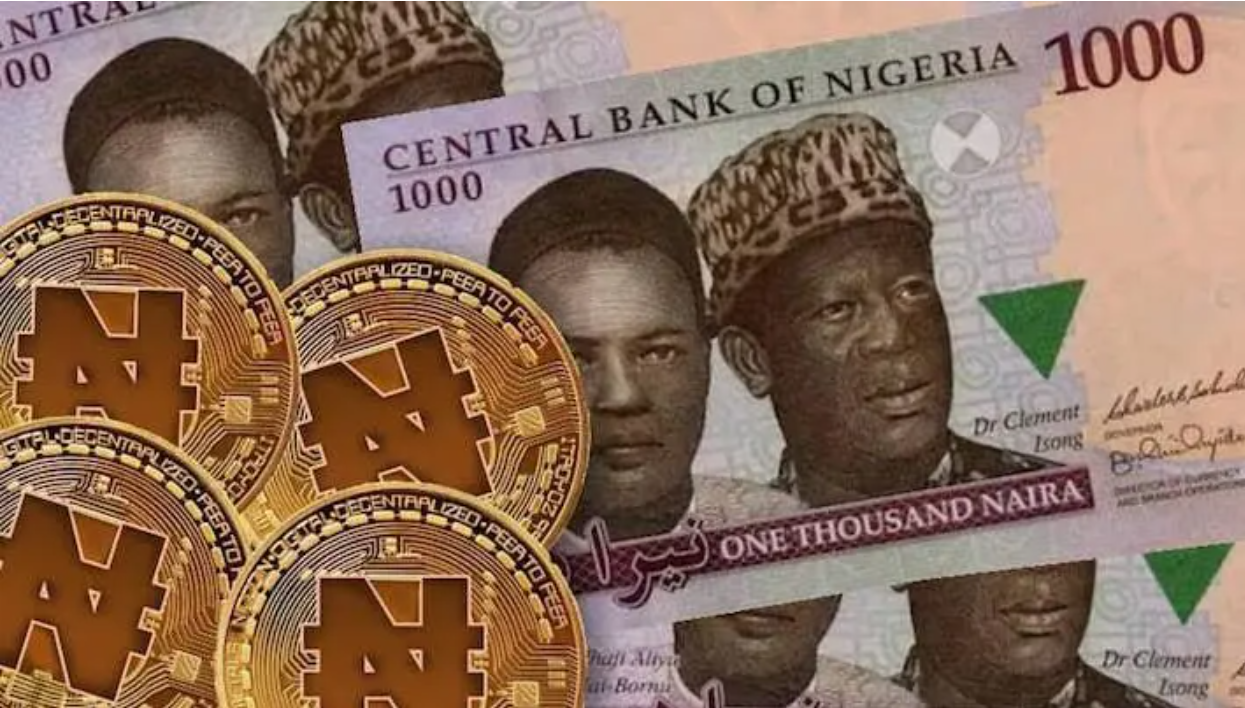In a strategic leap forward, the Nigerian government has unveiled plans to roll out the cNGN stablecoin on February 27, 2024.
Backed by the Central Bank of Nigeria (CBN), this digital currency is aimed at bringing stability to the unpredictable naira, currently grappling with the unenviable title of Africa’s weakest currency and the third weakest globally.
According to a statement from Dayo Olusegun, an aide to the Nigerian President, the cNGN is poised to revolutionize global transactions. Users can expect to navigate a borderless financial world, making seamless transactions worldwide using the naira and even buying and selling goods at the official CBN rate. It’s a move set to simplify currency conversion and bid adieu to those pesky international transaction fees – a game-changer indeed.
Read also: CBN emphasizes eNaira as digital payment option for Diasporas remittances
Naira vs. Dollar: cNGN’s Unique Path
Comparing the cNGN to stablecoins like USDT and USDC reveals a notable distinction. Unlike its counterparts pegged to the steadfast US dollar, the cNGN ties its fate to the naira’s inherent instability. Tayo Oviosu, the brains behind Paga Communications, sums it up concisely, stating, “The stablecoin we need is a stable naira to the USD.” It’s a straightforward acknowledgment of the need for stability in the dynamic world of currencies.
Imagine stablecoins as serene islands in the turbulent sea of cryptocurrencies, their value tethered to stable assets. However, pegging the cNGN to the naira introduces an element of unpredictability. The naira’s notorious reputation for volatility raises eyebrows, leaving investors cautiously optimistic about the sought-after stability.
CBN’s Grand Vision: cNGN as the Global Currency
The official statement underscores that the cNGN is a crucial component of the CBN’s grand vision – turning the naira into a globally trusted currency. This proclamation highlights the CBN’s commitment to positioning the naira as a reliable asset for investors across the globe.
Significantly, the cNGN takes the reins as a successor to the eNaira, a project that absorbed substantial investments under Governor Godwin Emefiele. Departing from the eNaira’s solo journey, the cNGN is entrusted to the Africa Stablecoin Consortium (ASC), signaling a shift toward collaborative innovation.
Insiders hint at the cNGN’s adaptability, showcasing interoperability with strategic blockchains like Bantu and Binance Smart Chain. This flexibility underscores its potential seamless integration within the vast crypto landscape.
As the countdown to February 27, 2024, begins, Nigeria braces for a paradigm shift in its financial narrative. The cNGN stands at the threshold, ready to challenge norms, redefine stablecoins, and etch its mark in the ever-evolving world of cryptocurrency.
A Historical Reminder – Crypto Under Buhari’s Administration
In the annals of Nigeria’s recent crypto history, the regulatory landscape witnessed a significant shift during the tenure of President Muhammadu Buhari. Under his administration, specific regulatory constraints were imposed on cryptocurrencies, adding a nuanced layer to the historical canvas shaping Nigeria’s present crypto narrative. This period marked an unexpected turn, underscoring the intricate interplay between policy decisions and the evolving crypto landscape in the country.
Recall that in a series of regulatory moves under President Buhari’s administration, the Central Bank of Nigeria (CBN) took a significant step on February 5, 2021. The CBN, through its Directors of Banking Supervision and Payments System Management, Bello Hassan and Musa I. Jomoh, issued a statement prohibiting all financial institutions in Nigeria from dealing in cryptocurrencies. This decision aimed to curb the use of digital currencies, citing concerns about money laundering, terrorism financing, and illegal activities facilitated by the anonymity of cryptocurrencies.
The ban, enforced with severe regulatory sanctions for breaches, stirred controversy, particularly among the youth. The move followed a surge in cryptocurrency usage during the #EndSARS protests in 2020, driven by the need for alternative financial channels when traditional platforms faced restrictions.
Surprisingly, on the eve of the Buhari-led government’s exit in 2023, a twist emerged. Despite the historical aversion to crypto, the government introduced a new law to tax gains on digital assets, including cryptocurrency. The amendment to the 2022 Finance Act now imposes a 10% tax on profits from digital assets, reflecting a nuanced shift in the government’s approach to cryptocurrency regulation.
This move raises questions about the government’s evolving stance on crypto, marking a departure from outright prohibition to a regulatory framework that incorporates taxation. As Nigeria navigates this evolving crypto landscape, it remains to be seen how these measures will impact the burgeoning digital currency ecosystem.




